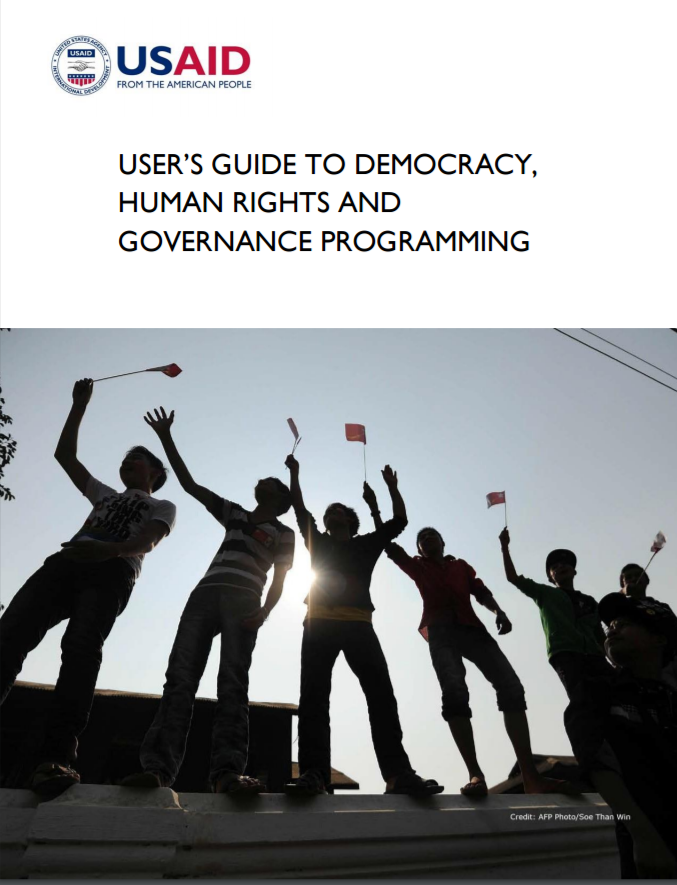On February 27, 2012, the Agency’s Center of Excellence on Democracy, Human Rights and Governance (hereafter “the DRG Center”) was launched. A year later the first-ever U.S. Quadrennial Diplomacy and Development Review (QDDR) explicitly tasked USAID with establishing the DRG Center as the primary means of elevating and integrating democracy, human rights and governance within the Agency’s overall development portfolio.
The DRG Center has a mission statement to “advance democracy, human rights and governance for the sake of political freedom, while contributing to socioeconomic progress and overall developmental resilience by integrating DRG across all sectors." The DRG Center organizes its work to achieve the three following strategic objectives: 1) Learn: Increase knowledge concerning the global advancement of DRG; 2) Serve: Improve the quality and impact of DRG technical assistance to the field; and 3) Influence: Elevate the role of DRG in key USAID, USG and multilateral strategies, policies and budgets. With a strong emphasis on rigorous learning, the DRG Center will promote and support evidence-based DRG programming.
This User’s Guide to DRG Programming has been crafted to serve as a fundamental reference tool for USAID missions and bureaus to utilize in pursuit of advancing democracy, human rights and good governance. This Guide outlines the structure and breadth of the DRG Center’s technical expertise, as well as the D.C.-based DRG cadre. The Guide catalogs the funding and implementing mechanisms that may be accessed through the DRG Center and other offices, and technical resources which inform DRG work. With a strong emphasis on rigorous evaluation and learning, the DRG Center is committed to promoting evidence-based policy, strategy and programming in the DRG sector.
The Agency’s primary means of implementing DRG programs in “presence” countries remains in USAID missions. In well-defined circumstances, these mechanisms may also be used in “non-presence” countries. Overall, the DRG Center’s support of missions is provided through an interlinked approach that involves technical leadership, targeted field support, cadre development and training, and direct program management. Various training as well as assessment and programming tools are developed by the DRG Center to assist missions in analyzing and choosing appropriate strategies to address the DRG issues in their host countries, as well as implement Agency-wide policies.
The nine divisions that comprise the DRG Center are: 1) Civil Society & Media (CSM); 2) Cross-Sectoral Programs (CSP); 3) Elections & Political Transitions (EPT); 4) Empowerment & Inclusion (EI); 5) Global & Regional Policy (GRP); 6) Governance & Rule of Law (GROL); 7) Human Rights (HR); 8) Learning; and 9) Strategic Planning. There are also two permanent working groups within the DRG Center, the DRG Gender Working Group and the Training Leadership Team.








Comment
Make a general inquiry or suggest an improvement.